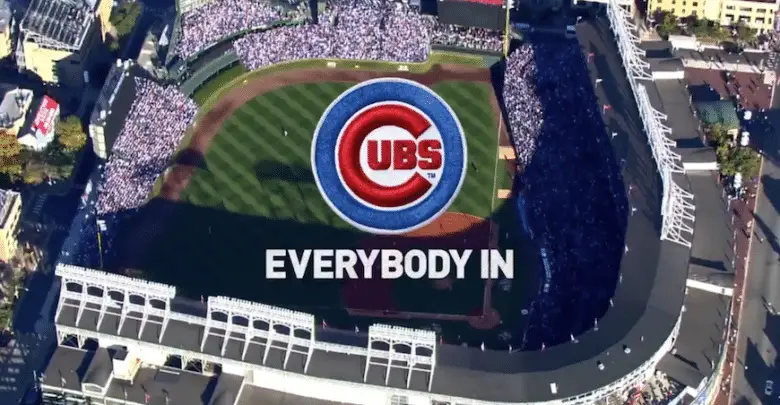
New TV Deal Could Earn Cubs Additional $100 Million in Annual Revenue
As our own Evan Altman wrote yesterday, the Cubs confirmed their intentions to start their own television network at the conclusion of the 2019 season. The switch is expected to significantly increase team revenues and my estimates have that increase at about $90-100 million a year.
The Cubs current broadcast rights call for them to bring around $70 million in cable revenue, plus another $14 million from terrestrial stations, next season. The most recent club to negotiate a new TV deal was the Tampa Bay Rays, who reportedly negotiated a 15-year deal averaging $82 million per year this past January. That represents a 134 percent increase on their previous $35 million deal. If the Cubs leverage a similar increase on the cable portion alone, the new deal would bring in roughly $163 million a year.
Two other clubs, the Dodgers and Phillies, also negotiated new TV deals in the recent past. The Dodgers, who play in the massive LA media market, inked a 25-year deal for $8.35 billion that pays them $204 million per year. The Phillies’ deal is for the same length, but their smaller market means they are getting $100 million per year, plus a share of ad revenue from a 25 percent stake in the regional sports network. All told, it probably works out to $120m per year.
The Chicago media market is about halfway between those two, suggesting a $160 million annual deal, right in line with my previous estimation. Extrapolated over the same amount of time as the Dodgers’ and Phillies’ pacts, the Cubs could have a $4 billion partnership that would increase their revenues by an average of $90 million a year. Since this is an average, the initial jump in 2020 would be smaller.
But the overall increase will actually be even larger. By starting their own regional sports network (RSN) the money the Cubs generate will be shielded from the revenue sharing pool, which requires each team to pay a portion of their baseball related revenues into a giant pot. Each team then removes an equal share of that pot, so wealthier teams, like the Cubs, pay in more than they are able to take out.
Contributions are based on a blended average of three numbers: 50 percent of the baseball revenues from the previous year and 25 percent of baseball revenues from each of the two prior years. The key word in the previous sentence is “baseball revenues,” which ad revenue from owning an RSN does not count toward. Thus, all of this new RSN money would be shielded from revenue sharing, a loophole the Yankees have used for years with YES network revenues.
Based on old data, I calculated that the Cubs lose somewhere in the neighborhood of 11-12 percent of their baseball revenue to this sharing process. That amounts to losing $9 million on the current $84 in media money, so the Cubs’ overall revenue will actually increase by that amount in addition to the extra income from the new deal.
There’s also the added bonus of stability in the form of a pact that could extend a quarter-century into the future. The Cubs’ current deal cobbles together coverage from three different entities and was only set for five years, so the increased certainty allows more freedom. What’s more, their 20 percent stake in NBC Sports Chicago represents their only current ownership interest in a broadcast partner, something that is sure to change with a new deal.
Any way you slice it, the Cubs are looking at a massive bump in average annual revenues that they’ll get to retain an even larger percentage of than they do now.

